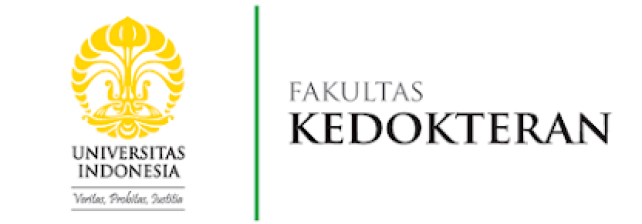Cervical cancer is the most common cancer in productive aged woman, and it’s the 3rd deadliest of all cancer. Radiotherapy is one of the treatment modality of cervical cancer. Many efforts have been done to increase the success rate of radiotherapy, but the result is still not satisfying. On cervical cancer stage II and III, local response remains on 50-80% only.
Oncology is a study on cancer. Radiation oncology is a medicine branch studying about the treatment of malignancy with ionizing ray. One of the example of ionizing ray is x ray. Since the first time its discovered, radiotherapy is growing rapidly, even more so when technology and computer started to develop.
Circadian rhythm and cell cycle is a system in the human body with complex, harmonized, and specific pattern. Many research had found the relationship between the two. Circadian rhythm can be seen on the concentration of melatonin. Cancer cell divided through several steps, reacting differently to radiation on every step, therefore there are more sensitive times to do radiation. Recent studies show that cell division and growth is related to the circadian rhythm. Before that, the dynamic condition of cancer cells on the 24 hour is usually not calculated.
Until now, the therapy success rate of cervical cancer is still low. There’s a chance to increase radiation response by arranging the radiation time, linking it to the time when cancer cells is proliferating and is very sensitive, it is on the phase G2 and phase M, but the timing is not easy. Staff from Department of Radiotherapy FMUI-RSCM, dr. Irwan Ramli, SpRad(K), Onk.Rad, did a research on the effect of radiation timing to radiotherapy clinical response on cervical cancer patient, with a rationale that circadian rhythm affects cancer cells sensitivity.
The hypothesis of this research is that the best condition to do a radiation is in the morning. These days, radiation timing is not regulated. Patient is radiated based on the time they arrive at the hospital. Radiation is always given in fraction, multiple times. With the recent pattern, it is estimated that the cancer is on insensitive phases, and the cancer cells will become more sensitive one the next morning. There’s a theory that a sensitive condition happens on the following radiation. Further study is needed to find out factors contributing to therapy success.
On this study, the radiation time is divided into two times it is in the morning (06.00-08.00) and the afternoon (16.00-18.00). The clinical response is measured by the disappearance of tumor or reducing of the tumor until <1 cm. response is measured after all the radiation package is completed in 2-4 weeks after that. The result shows that the radiation done in the morning give better result compared to the radiation in the afternoon on several conditions, like in tumor sized less than 4 cm and hemoglobin level ≥10 g/dL. There’s no difference on side effects in both groups.
This study recommends to do a selection before doing radiotherapy. If the tumor is small and the hemoglobin level is adequate, radiation is best done in the morning. And the writer recommends other researcher to the similar research to increase the effectivity of radiation in large sized tumor with low hemoglobin level. Transfusion can be done to increase hemoglobin level.
The result was presented by dr. Irwan Ramli, SpRad(K), Onk.Rad on his docoral hearing on Wednesday, June 26th 2019 in IMERI Auditorium. The dissertation is titled “The Effect of Radiation Pattern Following Circadian Rhythm to Radiotherapy Response in Cervical Cancer: A Study on Melatonin and Cell Cycle as a Biologic Mark and Radiosensitivity”.
The head examiner on the hearing was Prof. Dr. dr. Suhendro, SpPD-KPTI, and other examiner consisted of dr. Nurjati Chairani Siregar, MS, SpPA(K), PhD; dr. Muchtaruddin Mansyur, SpOk, MS, PhD; Dr. rer. Physiol. dr. Septelia Inawati Wanandi; and Dr. dr. Setiawan Soetopo, SpRad(K), Onk.Rad from Padjajaran University.
On the end of the hearing, Prof. Dr. dr. Ari Fahrial Syam, SpPD-KGEH, MMB inaugurated dr. Irwan Ramli, SpRad(K), Onk.Rad as a Doctor in Medical Science of FMUI. Through their closing speech, promotor Prof. Dr. dr. R. Susworo, SpRad(K), Onk.Rad, and co-promotors Dr. dr. Laila Nuranna, SpOG(K), Onk and dr. Alida Roswita Harahap, PhD, SpPK hoped this research can be applied on daily lifes to increase the therapy response of cervical cancer, especially stage II and III.
(Public Relations FMUI)
